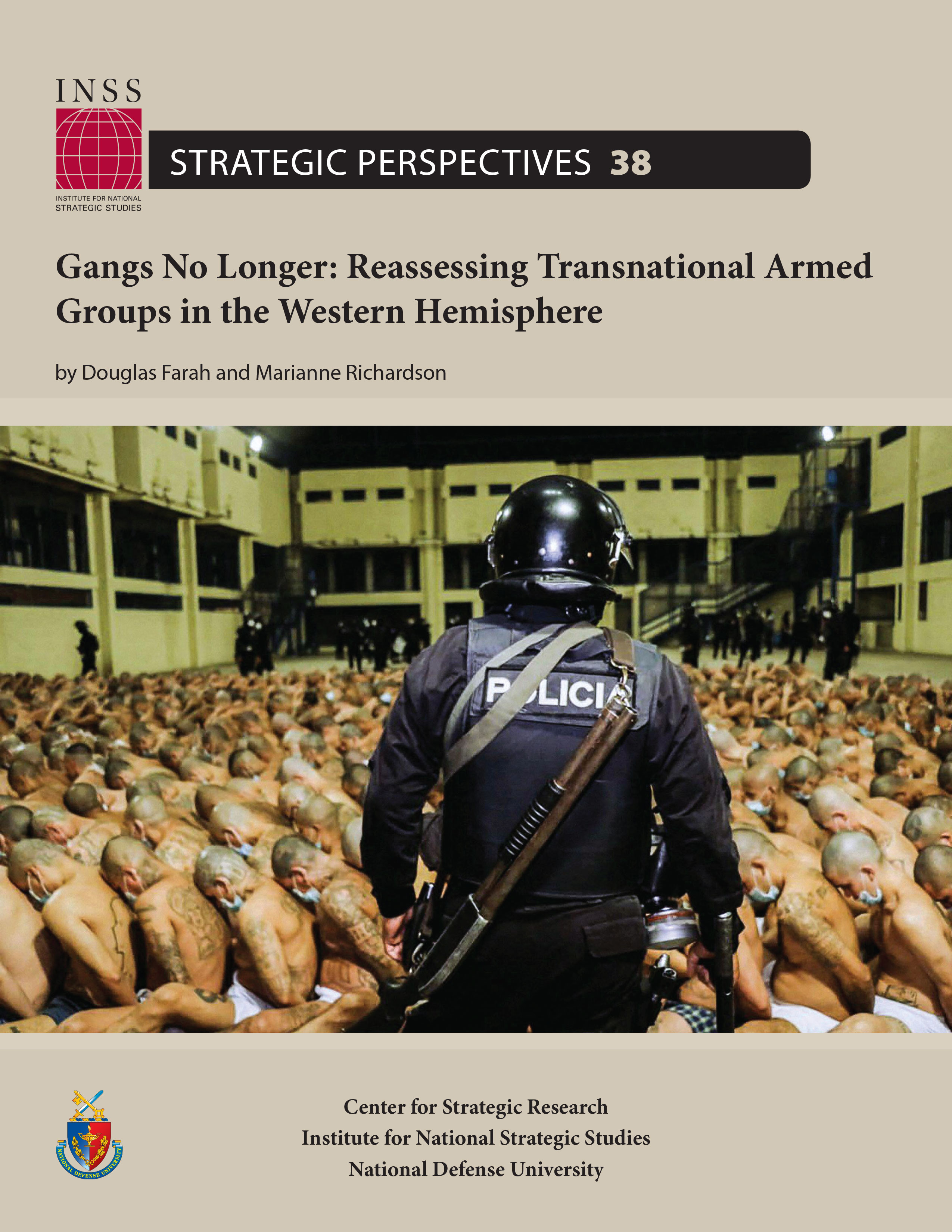Download PDF
Executive Summary

MS-13 (Mara Salvatrucha) in the Northern Triangle of Central America and the Primeiro Comando da Capital (PCC; First Command of the Capital), based in São Paulo, Brazil, are both tier-one criminal/political/military threats to the stability of the Western Hemisphere.1 These groups—no longer gangs but community-embedded transnational armed groups (CETAGs) in the pantheon of nonstate armed actors—are becoming more deeply enmeshed in the global drug trade, the body politic, and armed conflicts in the hemisphere. These CETAGs, rooted and enduring in their communities of origin, are likely to expand across the hemisphere and are driving multiple types of corruption that President Joe Biden in December 2021 vowed to fight as a core U.S. strategic interest.
This paper compares MS-13 and PCC as particularly enduring variations of nonstate armed groups and assesses each group’s evolution and impact on U.S. core interests in the region. It focuses on five aspects of MS-13 and PCC composition and behavior: objectives, constituencies and alliances, capabilities, markets, and impact. Key findings include:
- Objectives: Both groups aim to become major criminal enterprises embedded in the state.
- Constituencies and alliances: Both groups are rooted in their communities. Both are rapidly amassing formal political power and seeking new alliances with each other as well as state and nonstate armed actors. Both groups have also reached a tacit understanding with the regime of Nicolás Maduro and other allied criminal structures operating in Venezuela to acquire cocaine and weapons. While the PCC has a significant social media presence, MS-13 does not have such an outreach program.
- Capabilities: Both groups control territory as a primary claim to legitimacy, and both have largely replaced the state as the arbiter of power across most of the areas where they operate. The PCC has a greater capacity as a multinational economic organization with a wider global reach than MS-13. The PCC also carefully cultivates a public image through spectacular bank and jewelry heists and deliberate social media influencer campaigns. MS- 13 is less strategic about its public image and less dedicated to social media messaging.
- Markets: The PCC reaches beyond Brazil as a sophisticated, multicontinental cocainetrafficking structure and completely controls Brazil’s booming internal cocaine market. Its franchises operate in Bolivia, Paraguay, Europe, Africa, and beyond. In contrast, MS-13 is far less involved in the transnational drug trade and remains largely confined to northern Central America and the United States, with a growing presence in Mexico and Belize.
- Impact: MS-13 poses an existential threat to the governments of El Salvador and Honduras and more directly challenges the United States. The PCC is not yet at this stage. Available evidence indicates that the PCC has most successfully penetrated state and local governments and has yet to meaningfully leverage its power against the Brazilian state.
An important first step is to combat corruption and its root causes as well as transnational organized crime. Both are strategic priorities for the Biden administration in Latin America. This effort should be combined with cross-regional law enforcement to fight the PCC’s growing presence in Africa. The United States should assist its Western Hemisphere partners to establish closer relationships with allied governments on the African continent and bring shared benefits of new information and lessons learned that could help inform a coordinated multilateral response.
Read More